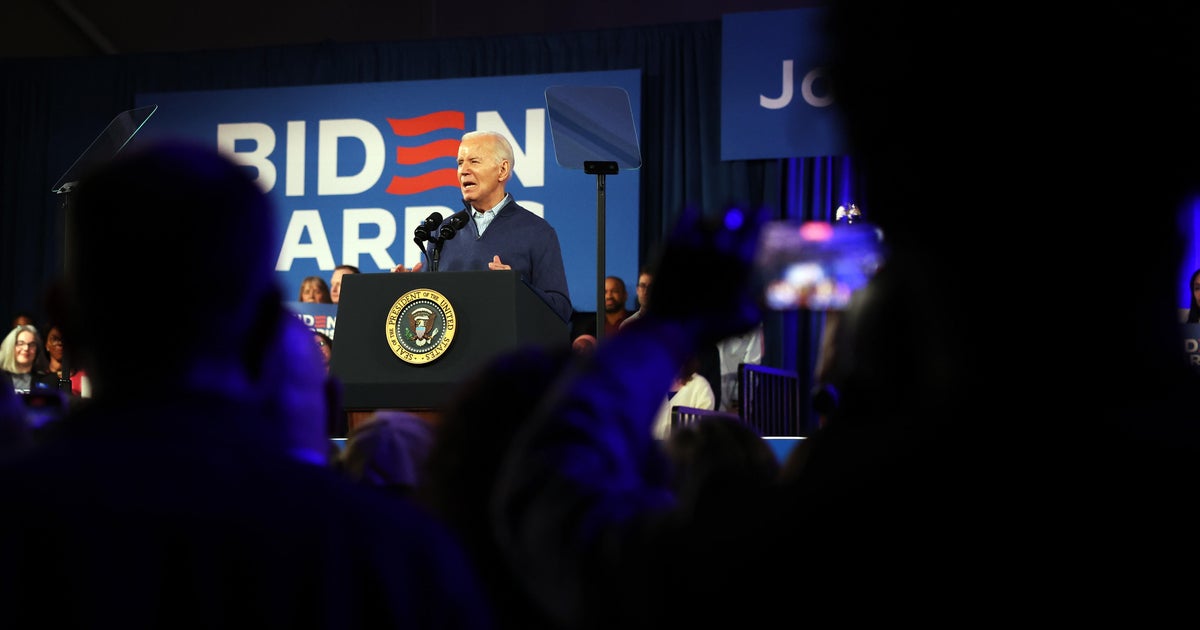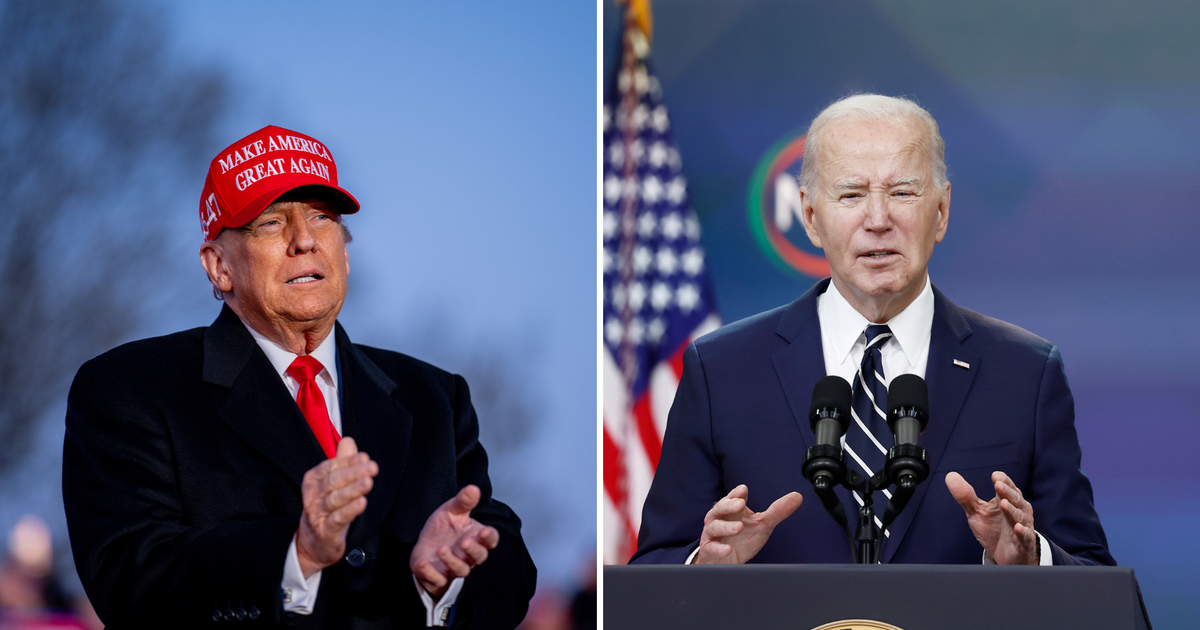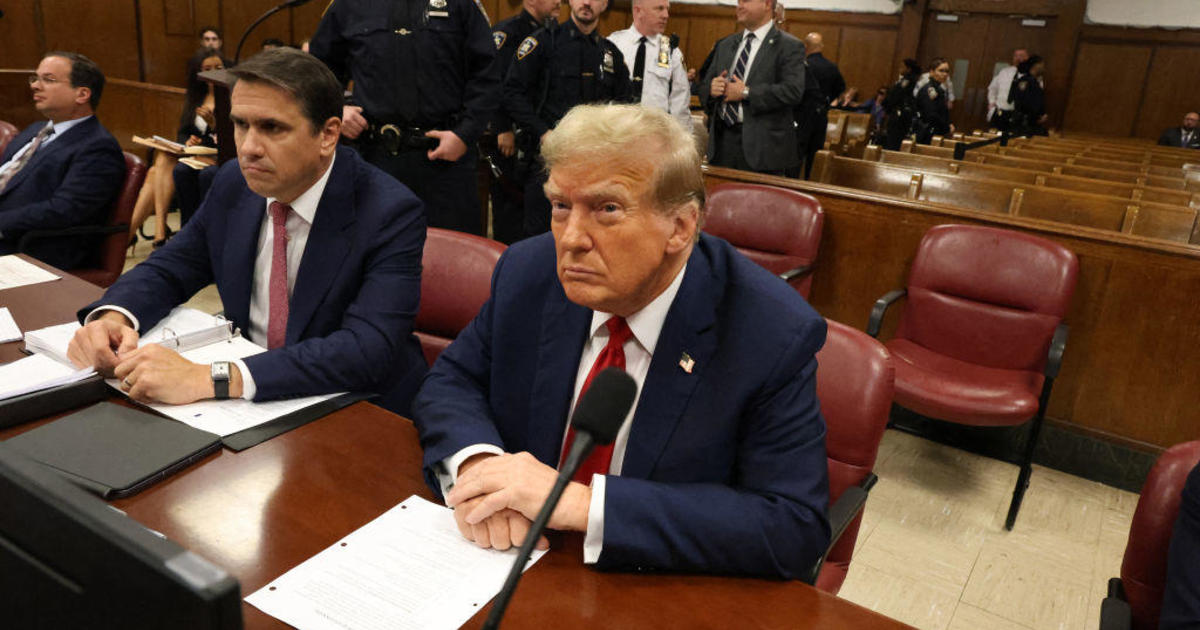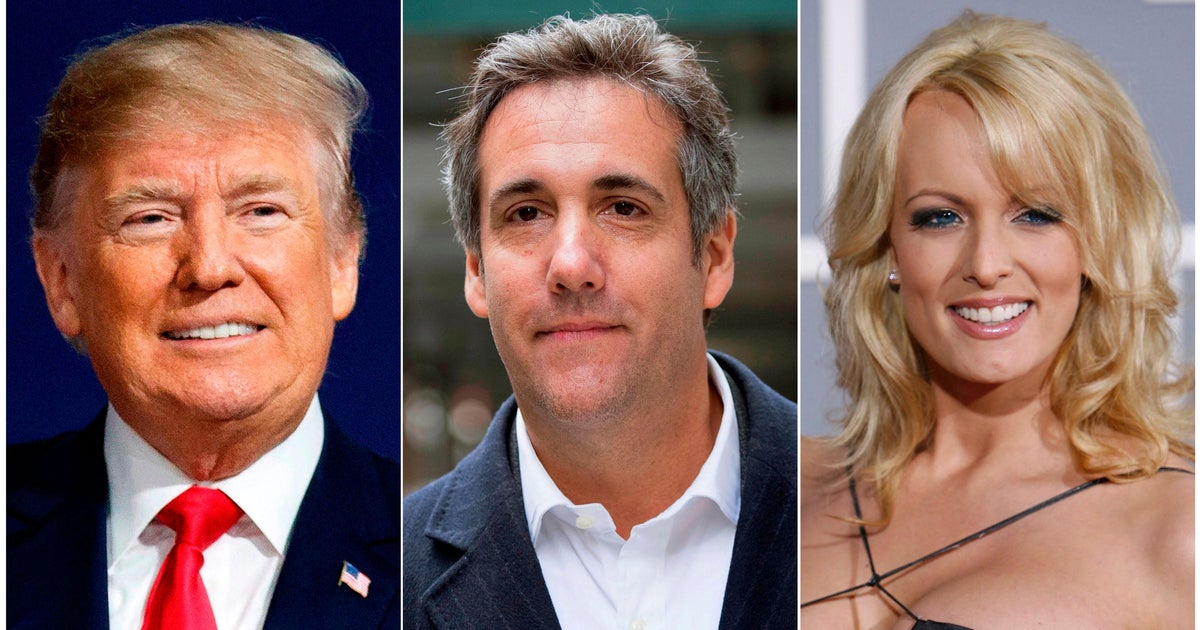What to know about the Electoral College, and why some Democrats want to end it
Two Democrats running for the nation's highest office want to revolutionize the way the U.S. elects its presidents — they're calling for the abolition of the Electoral College. Since 2000, the Democratic Party has seen two of its candidates win the popular vote, only to lose the electoral vote and the White House.
Now, Pete Buttigieg and Massachusetts Sen. Elizabeth Warren, both of whom are running to unseat President Trump in 2020, want to see an end to the Electoral College. Former Texas Rep. Beto O'Rourke said Tuesday he sees "a lot of wisdom" in the idea.
"I believe we need a constitutional amendment that protects the right to vote for every American citizen and to make sure that vote gets counted," Warren said at a CNN town hall on Monday. "We can have national voting, and that means get rid of the Electoral College."
But the Electoral College has been enshrined in the Constitution for more than 200 years, so getting rid of it wouldn't be easy. Here's what to know about how it could be done.
What's the Electoral College?
The Electoral College has nothing to do education. "College" in this context refers to an antiquated definition of the word meaning a group devoted to a single goal — namely the election of the president. The founding fathers constructed the system for indirectly electing the president partly out of fears that the general population would be too ill-informed to cast a meaningful vote, making the process susceptible to manipulation.
Instead, the founders determined that each state would receive a set number of "electors" to allocate as they see fit. Most states use a winner-take-all method, meaning the candidate who receives the most votes gets all the state's electors.
There are 538 electors, meaning 270 electoral votes are needed to be elected. Each state is apportioned electors based on its congressional delegation: It has the same number of electors as its number of representatives and senators. (Washington, D.C., was allocated 3 electoral votes under the 23rd Amendment.)
Some critics of the Electoral College object to its racist origins. Under the Constitution's Three-Fifths Clause, slaves were counted as three-fifths of a person for the purposes of determining representation in Congress, and in turn the number of electors in a given state.
What would it take to eliminate the Electoral College?
The Electoral College was established in Article II of the Constitution, and could be repealed by constitutional amendment. But that's a difficult road. Amendments require a two-thirds majority vote in both houses of Congress and ratification by three-fourths of the states, or 38 of the current 50.
There have been a few attempts in the past to eliminate the Electoral College with a constitutional amendment. Rep. Emanuel Celler and the late Sen. Birch Bayh introduced a bill to replace the Electoral College with a plurality system in 1969, in which a candidate would win the election if he or she received at least 40 percent of the popular vote. The proposal passed the House but died in the Senate in 1970.
More recently, Democratic Rep. Steve Cohen of Tennessee proposed a joint resolution to "abolish the Electoral College and to provide for the direct election of the President and Vice President of the United States" in the current Congress.
Could a constitutional amendment be overturned?
If a constitutional amendment to abolish the Electoral College were ratified, it couldn't be overturned by the Supreme Court. The process to repeal an amendment is the same needed to pass one. For example, the 18th Amendment, which implemented Prohibition, was repealed by the 21st Amendment.
If an amendment contradicts an earlier portion of the Constitution, the newer amendment nullifies the original text. For example, the 13th Amendment eliminated slavery, effectively making the Three-Fifths Clause obsolete. The clause was then explicitly repealed in the 14th Amendment.
Could states take the lead in changing the system?
One creative option for changing the status quo goes through the states. Article I of the Constitution stipulates that "each State shall appoint, in such Manner as the Legislature thereof may direct, a Number of Electors, equal to the whole Number of Senators and Representatives to which the State may be entitled in the Congress."
That means states get to decide how to choose how their electors and divvied up, and could abandon a winner-take-all system, and there are a couple of ways to do this.
"Since a state may appoint 'in such a manner' as it chooses, it is possible to apply a proportional rather than winner-takes-all approach as used in Maine and Nebraska. It is also theoretically possible to award electors according to the national vote," said Jonathan Turley, a professor at George Washington University Law School and contributor to CBS News.
Maine and Nebraska, unlike the rest of the states, award two electoral votes to the statewide popular vote winner and one vote to the congressional district winner in each of the congressional districts (Maine has two, and Nebraska has three). This enables them to split their votes among the candidates, and they sometimes do.
Some states would go further than this, passing legislation to award their electoral votes to the winner of the national popular vote. Eleven states and D.C., accounting for 181 electoral votes, have entered into this "National Popular Vote Interstate Compact," which would go into effect if and when states with an additional 89 electoral votes join the effort, for a total of 270. The New Mexico state legislature approved the measure earlier this month.
Would that be legal?
Turley said the compact, if adopted by states with a total of 270 electoral votes, could invite a legal challenge.
"It could be argued that it conflicts with the electoral approach since it would simply duplicate a national vote result. However, the Constitution does not expressly limit the 'manner' selected by the states. Indeed, it does not actually mention an 'Electoral College,'" Turley conceded.
What are the arguments for eliminating the Electoral College?
In 2016, 70,000 votes in three critical states tipped the election to Mr. Trump: Wisconsin, Michigan and Pennsylvania. These votes ended up being more consequential than the 3 million more cast for Clinton, because they gave Mr. Trump the electoral votes he needed to win the election.
Opponents of the Electoral College argue the system concentrates power in smaller states. It also means just a handful of states command the attention of presidential candidates during the campaign. Candidates generally don't campaign in reliably blue or red states like New York or Alabama, and instead flock to so-called battleground states like Ohio or Florida, where the race is competitive.
The group FairVote found that over 90 percent of the electoral activity in the 2016 presidential campaign had taken place in just 11 battleground states. That dynamic means issues important to millions of Americans can receive less attention from candidates.
What are the arguments for keeping it?
Essentially, the Electoral College gives more weight to smaller, more Republican states who would likewise get ignored in a popular-vote system. If elections were decided by the popular vote, then Democrats would have a structural advantage. According to a July report by Larry Sabato's Crystal Ball, there are nearly 12 million more registered Democrats than Republicans in the 31 states and D.C. with party registration. Republicans fear that voters in large blue states like California would have more influence if the presidency were determined by popular vote.
So if it's the case now that candidates spend all their general election time in states in the middle of the country — the battlegrounds of Michigan, Pennsylvania, Ohio, Colorado, for example — dropping the Electoral College would likely result in the urban, population-rich states on the coasts — California and New York — getting more attention. Large, red-leaning states like Florida and Texas would also become ever more important.




